Contenidos del artículo
- Battlestar Galactica (2004)
- Star Trek TNG (the new generation) (1987)
- The expanse (2015)
- Эпидемия (To the lake) (2019).
- Caprica (2010)
- Incorporated (2017)
- Farscape (1999)
- Altered Carbon (2018)
- Charlie Jade (2004)
- Maniac (2018)
- The Orville (2017)
- Star Trek Voyager (1995)
- Star Trek Enterprise (2001)
- 3% (2016)
- Babylon 5 (1993)
- Stargate Universe(2009)
- Lexx (1996)
- For all mankind (2019)
- Better than us (Лучше, чем люди) (2018).
- Real humans (Äkta Människor)(2012)
- Blackmirror
- The Man In the High Castle (2015)
- Doctor Who (2005)
- Stargate Atlantis (2004)
- Snowpiercer: Snowpiercer
- Dollhouse (2009)
- Defiance (2013)
- Beyond the Limit (1995)
- Torchwood (2016)
- Raised By Wolves (2020)
- Some of the ones I have purposely left out
As a good science fiction lover I must admit that I am and have been for decades a devourer of science fiction series. I’ve spent much of my life searching for new science fiction television series, and I want to have an article that talks about all the series I’ve liked. This long article is intended to be a total compilation of all the series I’ve seen, because of its length it could be a whole blog, but I preferred it to be a single text, since my blog is oriented to what I write, not to talk about movies, books or series.
Most of the ones I mention are in one way or another, known, although you may find some unknown ones. Finding them can be more or less difficult, but on the Internet, if you know how to search, you can find anything. Please leave a comment if you know of a series that is not mentioned here. At the end there is a “discards” section for series that I didn’t like or that I think don’t deserve to be on my list, maybe the one you mention is in that section. The order is not random, the first ones are the ones I liked the most, but it’s all subjective. If you were to ask me tomorrow I might change that order.
I’m planning to make another page with the sci-fi movies I liked, also as a compilation, but it will take me time, because the list is much longer.
Battlestar Galactica (2004)
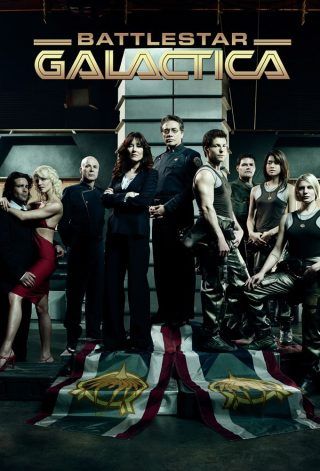
This great series is based on a 1978 series of the same name. It tells the story of the destruction of human civilization by a “race” of intelligent robots, the Cylons, created by these same humans generations ago. These humans are not earthlings, but from another intelligent civilization, living on twelve planets spread across different solar systems. The series has four seasons, plus the miniseries that spawned the series.
For its scripts, setting, pacing and plot, it is for me one of the best science fiction series on television. It is true that there are some rather weak chapters, and many others that forcefully introduce themes that have nothing to do with a series like this, it is true that the ending is not exactly the best they could have given it, with too many deus ex machina, but even with everything, the memory I have of this series in my youth is absolutely irreplaceable. This would be without a doubt one of my top five favorite series of all time.
You could say it’s military-style science fiction, with very interesting themes of artificial intelligence, a post-apocalyptic future of survival in space, and with many political plots in a unique visual mix. The first chapters seem more like a documentary than fiction. If you don’t know it yet, try it, you won’t regret it.
Star Trek TNG (the new generation) (1987)

This is one of the best known C/F series in modern television. It has seven seasons and narrates the events 70 years after the original Startrek TOS (The Original Series). It stands out for storylines that focus stories in each episode and season closers that maintain a story arc throughout the series. For me it is one of the reference series, although over time, the seams are showing.
It is an essential series for every science fiction fan and also suitable for almost all audiences because although it has a lot of science fiction thanks to the panoramas it paints with different alien races, cultures and new technologies, the relationship between the characters and their development are very important. It is a very neat series in every aspect, and one of the series that I would put in my top sci-fi series of all time.
After TNG came others like Voyager and Enterprise, but this is undoubtedly the “best” Startrek of them all.
The expanse (2015)
 This six-season series is perhaps another one of those five series that I put on my top 5 list. Some time ago I wrote an extensive article about this series that you can read on my blog.
This six-season series is perhaps another one of those five series that I put on my top 5 list. Some time ago I wrote an extensive article about this series that you can read on my blog.
The story begins two hundred years in the future. Humanity has conquered the solar system, colonized Mars and some asteroids. Our protagonist, Detective Miller, born in one of them, has to solve the disappearance of the daughter of someone important. The problem, is that the girl has gotten herself into something very, very big.
The Expanse could be formally defined as a Space Opera, as does wikipedia in Spanish. The bad thing is that The Expanse has ingredients from movies like Zero Atmosphere, Blade Runner or Alien. Not bad mirrors to look into, are they? The expanse has action like Alien 2, dark and tormented characters like Blade Runner, closed environments, crowded with humid humanity, like Zero Atmosphere. In addition to these classic elements that generate atmosphere, you have cyberpunk, political elements, if you have read Red Mars you will know what I mean, and good space action, not like in StarTrek. In addition, the protagonist ship is called
Rocinante.
The series is based on the novels of James A. Corey, a pseudonym that groups two writers writing in tandem. Like the books, the series has ups and downs, but the story is perhaps the most complex, rich and ambitious you’ll ever see on television. Perhaps its weak point is the characters, except for Miller, in the first season, who is for me one of the best characters that television has given us in years.
If you haven’t seen it yet, you can’t miss it.
Эпидемия (To the lake) (2019).

There would be nothing special about this typical post-apocalyptic zombie dystopia if it weren’t for the fact that it is a Russian production. You won’t see anything like it on television, the Russians are able to build unforgettable characters and deliver a technically flawless production at the same time. Two seasons full of humanity, action and drama of the real thing, far from what you can see in an American-made series. If you like good stories, here’s one for you.
If this series is on my list it’s because I love good scripts and unique characters, this is one of those series. Otherwise, it has very good action scenes and a good production.
The plot centers on a diverse group of characters, including Sergei, a divorced doctor; his new partner, Irina; his teenage son, Anton; and a host of other survivors, each with their own struggles and secrets. Together, they embark on a perilous journey to Lake Baikal in Siberia in search of safety and hope amidst social collapse and growing paranoia.
What makes “To the Lake” unique is its tense, claustrophobic atmosphere, as well as its skillful combination of thriller, drama and science fiction elements. The series immerses us in a world full of unexpected dangers, from confrontations with other groups of survivors to the fight against disease and mistrust among the characters themselves.
Caprica (2010)
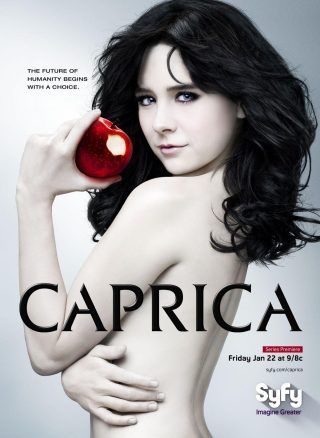
A spinoff of Battlestar Galactica that narrates the origin of the Cylons. It can be said that the series has a lot of flaws (like the casting), but the script has some incredibly good parts, mixed concepts like artificial intelligence, virtual worlds, cults, corporations, politics. It creates a cyberpunk world like few others you have seen on television, which is why it is one of my favorites and a series that inspired me a lot when I wrote“11,4 light dreams“.
Set in the city of Caprica, in a futuristic society riven by political and religious tensions, the series follows the intertwined lives of several influential families as they struggle for power and survival. It tells the story of the creation of the “Cylons” that led to the events of Battlestar Galactica and we can learn more about what life was like on the twelve colonies before the war.
It only has one season, since the series did not succeed in the audience, but it is another of my fetish series, even though in time, it will be completely forgotten due to its lack of success. Forget the dreadful poster and give it a chance.
Incorporated (2017)

Among the near-futuristic dystopias, Incorporated makes its mark, showing a world completely dominated by two large corporations. Following the canons of cyberpunk, we find a thriller where the technical paraphernalia (implants, memory manipulators, technological weapons, drugs) serves to tell a very human story, that of a skint extremely skilled with technology who manages to manipulate his past to infiltrate the ruling elite. The “trajeados” (or suits), who live in the “Green zones“, away from the life of misery in the “Red zones” where, for money, you can get anything. In the technical aspect, especially the photography, the series excels. In its day I wrote an article in detail about this series that you can read here . Unfortunately, it only has one season.
If you have read my novel, “11.4 light dreams“, the parallels with it are enormous. I talk about zero floor, they talk about Red zones, I talk about dirtbags, they talk about skinkt. My protagonist, like yours, is someone who is not who he says he is, and in general, the same problems of a society where humanity has been lost, both in the elite and in poverty, are shown. In this sense, the background of social and human science fiction is really well achieved.
I think I appreciate the touches of real quality, but most people will be left with Incorporated being a dark series with little action that ends up depressing, as has happened before in
Caprica
o Stargate Universe. The dark side of the soul is not commercial.
Farscape (1999)
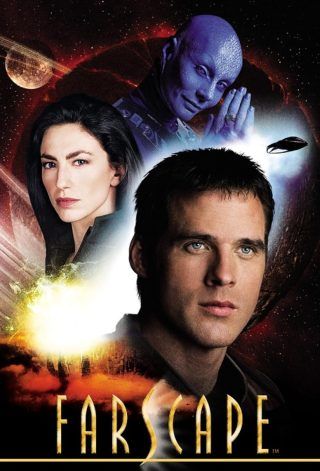
Classic series, from 1999 of 4 seasons and a final miniseries (Peacekeeper wars). It is about the story of a human test pilot from our time who ends up lost in a distant part of the universe and ends up as part of the crew of an alien fugitive ship.
As an attraction I can talk about the scripts, the characters and the extreme fantasy of their stories. On the downside, some of the characters are muppets, which makes it hard to take it seriously (yes, like the Sesame Street characters). I talked about it in detail in an old article on my blog that you can read here.
It has charismatic characters (who later appeared in other series such as Stargate) and are part of a classic science fiction that will not return as everything has become too “serious” or with too much violence. This series, suitable for all audiences, proves that pure imagination, if you want to, is enough to make a great series. Another one of my favorite series of all time.
Altered Carbon (2018)
B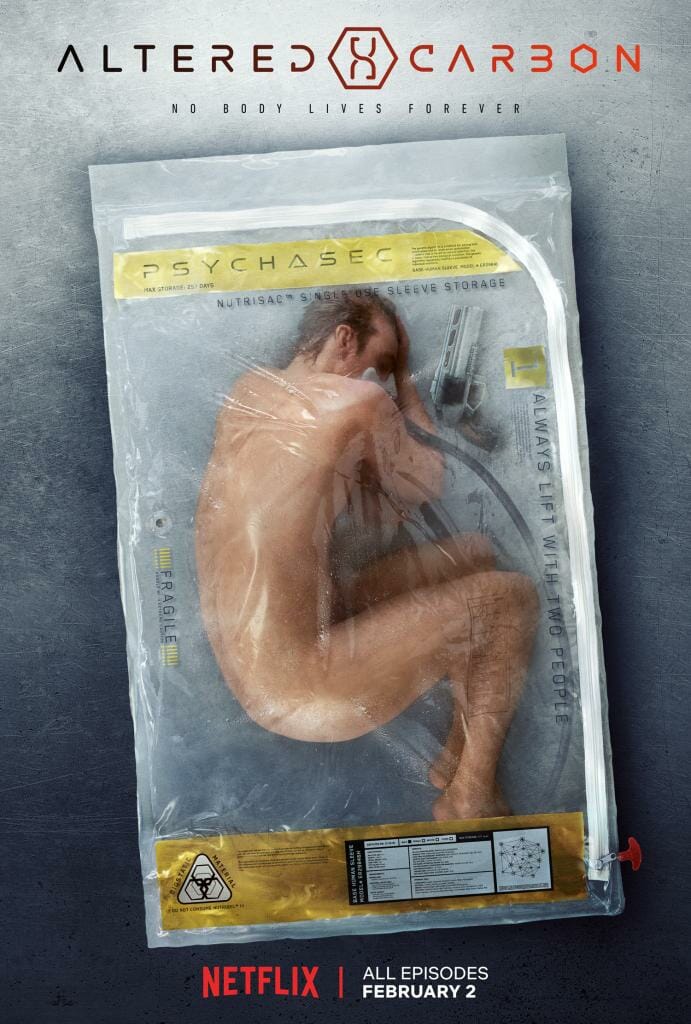 based on the best-seller of the same name written by Richard Morgan (a novel that I highly recommend), recreates a cyberpunk world based on a discovery that changed society: the exchange of bodies through the transplantation of consciousness, personality and memories through a kind of “chip” implanted from birth in the entire population, making it possible to resurrect after death, or simply, never die. The narrative possibilities are enormous. I made an article in detail at the time that you can read here.
based on the best-seller of the same name written by Richard Morgan (a novel that I highly recommend), recreates a cyberpunk world based on a discovery that changed society: the exchange of bodies through the transplantation of consciousness, personality and memories through a kind of “chip” implanted from birth in the entire population, making it possible to resurrect after death, or simply, never die. The narrative possibilities are enormous. I made an article in detail at the time that you can read here.
The production of the series is very good, and creates a visual universe of its own on a par with Blade Runner, but adapted to modern times. Although the series, consisting of two seasons, slackens a lot in its second and last season. The books, which are three: Altered carbon (2002), Broken angels (2003) and Woken furies (2005) are much better than the series, without detracting from the series, especially the first season.
Altered Carbon has absolutely all the ingredients of the Cyberpunk genre, neatly arranged and in the right proportion. If someone were to ask me, “Yeah, but what is cyberpunk?”, I would say, “See the first chapter of Altered Carbon”, that’s pure cyberpunk. Nothing is missingArtificial Intelligences (AIs), cybernetic implants, transfer of consciousness between bodies, immortality thanks to technology, large corporations, aerial cities, underworld, a wide variety of science fiction weapons, new religions, aerial vehicles, kicking drugs and virtual reality. Yes. Absolutely nothing is missing, and of course, it fulfills 101% the low life, high tech motto that defined the genre in the 80s.
Charlie Jade (2004)
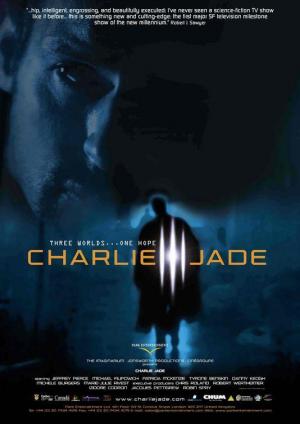
Imagine a cyberpunk plot that takes place in three parallel universes. Imagine that the plot takes place in Cape Town (South Africa) and that the production is South African and Canadian. Well, you’ve got a series unlike anything you’ve ever seen. There is not much technology, there are no ships, but the atmosphere is African cyberpunk, yes, very strange. If you like different series, this is yours.
The plot takes place in three interconnected realities: Alphaverse, Betaverse and Gammaverse. While Charlie investigates a case in Cape Town, he is drawn into an interdimensional conflict that threatens to destroy all realities. With a mix of action, intrigue and philosophy, “Charlie Jade” immerses us in a world full of mystery and wonder.
What makes “Charlie Jade” unique is its focus on exploring alternate realities and its bold vision of a dystopian future. The series challenges us to question our understanding of time and space as we follow Charlie on his quest for truth and redemption in a universe on the brink of collapse.
It only has one season, but we’ll have to make do with this, it’s very possible that you haven’t heard of it, because yes, it’s another one of those cult series that I love so much.
It was one of the first articles I wrote in my blog and you can read it here.
Maniac (2018)
 The story of Maniac, unsurprisingly, is the story of four totally different characters full of severe mental problems. Don’t expect a run-of-the-mill sci-fi series, which it has, but be prepared for what’s coming, which is coming. As a whole it works as a great movie, without repeating formula in any chapter, so that you will not be able to accommodate yourself to the fiction. Each chapter has a different length. As you can hear, it has only one season, with 45-minute episodes and some as short as 23 minutes. None last as long.
The story of Maniac, unsurprisingly, is the story of four totally different characters full of severe mental problems. Don’t expect a run-of-the-mill sci-fi series, which it has, but be prepared for what’s coming, which is coming. As a whole it works as a great movie, without repeating formula in any chapter, so that you will not be able to accommodate yourself to the fiction. Each chapter has a different length. As you can hear, it has only one season, with 45-minute episodes and some as short as 23 minutes. None last as long.
The cast, Emma Stone and Jonah Hill, are not exactly Sci-Fi regulars, and they show that they are excellent actors, which gives the series a different air, where humor is part of the story, a story full of details that is hard to watch, because it is very rich in nuances, despite how trashy it may seem at all times. You could say thatat some points you are reading an unfinished Phillip K. Dick script with two drinks and one of his jokes.
We have elves, sadistic mobsters, guns, spies and mental illness. It also has a selection process and a small group of people in an experiment, locked in a claustrophobic, futuristic setting. A computer with depression and a man in love with his creation who is an expert in virtual worlds and artificial intelligence. Wow, you could say that if you liked Brin’s Black Tears you’ll like Maniac, we even have a couple of Cyberpunk scenarios, but nope. Let me tell you, Maniac is simply a fun and intelligent (science) fiction series. You can read the detailed article I wrote about this series on my blog
The Orville (2017)
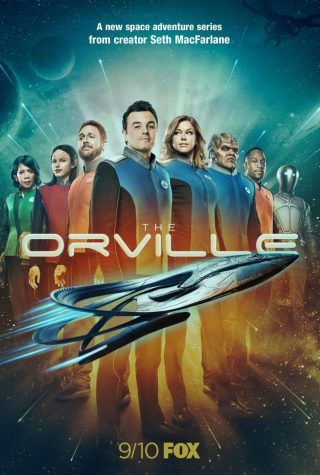 I confess that I laughed out loud in the first three minutes, despite the crude joke. The rudeness of the humor of this series is not the important thing, what is relevant is the kind of humor they have put in a science fiction series that is, although it seems incredible, very serious on the other hand. An alien ejaculating through the antennas, in a StarTrek-like world? Well, the first episode convinced me enough to watch the second episode. I’ve seen much worse first chapters (pilots) (Stargate, StarTrek Enterprise and a few others). I set out to watch the second episode, and then the third and so on. Dropped all three seasons in a heartbeat.
I confess that I laughed out loud in the first three minutes, despite the crude joke. The rudeness of the humor of this series is not the important thing, what is relevant is the kind of humor they have put in a science fiction series that is, although it seems incredible, very serious on the other hand. An alien ejaculating through the antennas, in a StarTrek-like world? Well, the first episode convinced me enough to watch the second episode. I’ve seen much worse first chapters (pilots) (Stargate, StarTrek Enterprise and a few others). I set out to watch the second episode, and then the third and so on. Dropped all three seasons in a heartbeat.
The Orville looks like a simple joke, but it is much more. It is a return to the exploration of the cosmos, to complex characters, and to putting ethical and moral dilemmas back into different contexts. Races, cultures and all kinds of physical phenomena involved in dynamic stories. All this, as in the best golden age of television, and to top it off, with characters and situations you’ve never seen before in science fiction: drunks, jokers, outgoing, hooligans or simply human. Mentions of Avis and Hertz as deities brought tears to my eyes. You can read more about the series in the article I wrote some time ago on my blog.
Star Trek Voyager (1995)
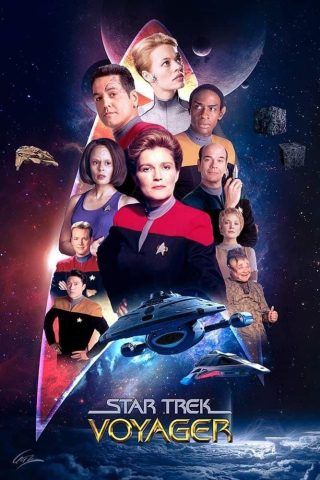 Seven-season series that inherits the trekkie tradition directly from StarTrek TNG.
Seven-season series that inherits the trekkie tradition directly from StarTrek TNG.
It puts us in the shoes of Captain Janeway, aboard the USS Voyager, lost in the Delta Quadrant (something like a sector of the universe millions of light years away from the nearest known star system), surrounded by dangers and new worlds to explore. One of my favorites, among other reasons, because they are alone and continually face the unknown, leaving aside the “comfort” of the federation and having everything under control, as in TNG or DS9. Except for the unclassifiable character who should have died from decompression in space in the first chapter, the rest of the casting is pretty good.
They change a little the paradigm of the style of relationships between the characters with respect to the previous series, and the characters are much more worked. The most peculiar is the character of the virtual doctor (a hologram), giving a lot of play in the story, along with the Borg crewman.
If you like Star Trek or The Orville, this series is a must in your collection.
Star Trek Enterprise (2001)
 Four-season series. Startrek Enterprise is an attempt to revive from the ground up, going back to the original USS Enterprise, the first human ship to begin exploring space, even before the federation existed. The idea comes after the movie that narrates the first contact of mankind with an alien race (the Vulcanians), in the film
Four-season series. Startrek Enterprise is an attempt to revive from the ground up, going back to the original USS Enterprise, the first human ship to begin exploring space, even before the federation existed. The idea comes after the movie that narrates the first contact of mankind with an alien race (the Vulcanians), in the film
Star Trek: First Contact,
one of my favorite movies of the Star Trek universe, by the way.
A risky bet, both aesthetically and in terms of plot, since with little budget it tries to recreate a time of adventure where humans are still a few mindundis in the universe. Quite the opposite of what happens in other Star Trek series, where the all-powerful Federation is the one who breaks the galaxy (with the permission of the Borg, Romulans and some others). This is another one of my favorites, especially because of the enthusiasm the characters overflow with. It reignites the best of Star Trek traditions and includes some romances and exotic girls in the chapters, in addition to the relationship between the main characters.
3% (2016)
 3% is a post-apocalyptic story, which narrates a near future, where only 3% of a population submerged in poverty and anarchy will become part of a privileged society -the elite-, after going through a hellish selection process, destined to choose the best. The series, faithful to the principle of showing, not explaining, gives glimpses of the anarchic society where this great majority lives, and of the myth that represents “the other side”: the place where these 3% live.
3% is a post-apocalyptic story, which narrates a near future, where only 3% of a population submerged in poverty and anarchy will become part of a privileged society -the elite-, after going through a hellish selection process, destined to choose the best. The series, faithful to the principle of showing, not explaining, gives glimpses of the anarchic society where this great majority lives, and of the myth that represents “the other side”: the place where these 3% live.
3% is a 4-season series produced in Brazil and with a truly unique aesthetic that goes from strength to weakness. The last seasons are not as good as the first ones, but they are still watchable. If you like psychological thrillers, as I do, you’ll enjoy it. Although I did not base my novel“11.4 Dreams of Light” on this series, I did like the narrative style, the plot and the aesthetics. You have to forgive him the last season, but as it usually happens in almost every series.
I talked about it in a dedicated article on my blog, which you can read here.
Babylon 5 (1993)
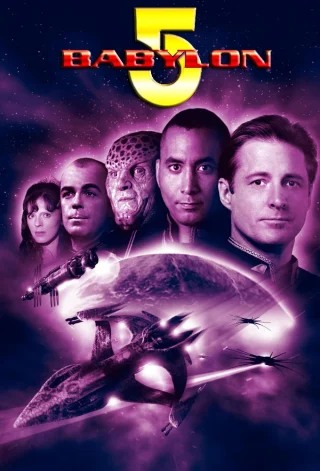
Since its debut in 1993, Babylon 5 has captivated science fiction fans with its intriguing mix of political drama, epic space battles and philosophical musings. Set on the space station of the same name, the series transports us to a future where humanity coexists with a variety of alien species in a melting pot of conflicts and alliances.
Babylon 5 ‘s greatness lies in its ability to address complex issues such as war, religion and identity through unforgettable characters and carefully crafted plots. From the mysterious Commander Jeffrey Sinclair to the charismatic Captain John Sheridan, the series immerses us in a universe full of intrigue and moral dilemmas.
Although the series ended in 1998, its legacy lives on in popular culture and continues to inspire new generations of science fiction fans. Babylon 5 ran for a total of five seasons. The series aired from 1994 to 1998, and each season featured a continuous narrative arc that unfolded over the course of the episodes.
More than thirty years have passed and the series has not aged too well, however, like other pieces on this list, it is one of the inescapable references and I spent many hours enjoying it as a youngster.
Stargate Universe(2009)
 SGU or Stargate Universe, which aired in 2009 and ran for two seasons, was the franchise’s latest attempt to squeeze the most out of the Stargate phenomenon. The initial concept and the tone used this time are the opposite of what we were used to in the classic series: a dark and sober atmosphere, and a more mature background, with tormented protagonists, with a turbulent past and unfinished stories. The initial approach is brilliant: a “B” team faces a great challenge for humanity: to meet the creators of the Stargates, a race of aliens with knowledge beyond imagination. It is a group of people unprepared for such a challenge, but they have no choice, as they have no way back: they have been cut off from humanity after jumping onto an alien ship in a universe hundreds of thousands of light years away. So far away that there is not enough power to connect back to Earth through the Stargate of the ship where they have been stranded, a gigantic Ancient ship, full of secrets and… completely empty.
SGU or Stargate Universe, which aired in 2009 and ran for two seasons, was the franchise’s latest attempt to squeeze the most out of the Stargate phenomenon. The initial concept and the tone used this time are the opposite of what we were used to in the classic series: a dark and sober atmosphere, and a more mature background, with tormented protagonists, with a turbulent past and unfinished stories. The initial approach is brilliant: a “B” team faces a great challenge for humanity: to meet the creators of the Stargates, a race of aliens with knowledge beyond imagination. It is a group of people unprepared for such a challenge, but they have no choice, as they have no way back: they have been cut off from humanity after jumping onto an alien ship in a universe hundreds of thousands of light years away. So far away that there is not enough power to connect back to Earth through the Stargate of the ship where they have been stranded, a gigantic Ancient ship, full of secrets and… completely empty.
Although the series only ran for two seasons, its impact lives on in the science fiction community. Stargate Universe challenged the conventions of the genre and offered us a darker, more realistic look at space exploration, leaving viewers with an insatiable appetite for more.
I wrote an article in detail about this series years ago that you can read on my blog.
Lexx (1996)
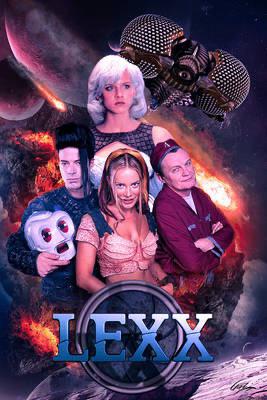
Lexx is a dark, bizarre and punk sci-fi series. There are four quite different seasons, produced in Canada, Germany and to a lesser extent England and the United States. You could say that this is a little gem of television. A series that today would be impossible to conceive. In the vast ocean of insipidity of regular (sci-fi) television, this is undoubtedly the strangest of them all (and the most erotic).
Radically opposed to the stilted, sterile and always politically correct space operas like Star Trek. Many of the scenes could be part of a little light porn scene, but no, it’s just weird science fiction.
You will either like this series or you will hate it, its German and Canadian screenwriters have a very particular humor. If you like absurd and bizarre scenarios and a touch of black humor, you’ll love this series, if you like more serious sci-fi, you’ll probably hate it.
The series is about the Lexx, the most destructive ship ever created by mankind, and its crew of three unconventional crew members, who have fled the center of human civilization and are looking for a new home outside of it. They will also have to face the insect civilization, which seeks to exterminate the human race.
For all mankind (2019)
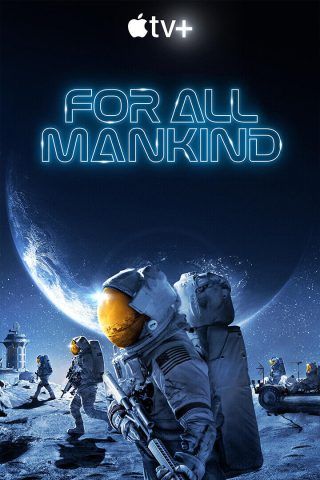 In 2019, sci-fi fans were transported to a fascinating alternate reality with the premiere of “For All Mankind,” which plays like a Uchronia in modern times (from the 1960s to the present day). This series takes us to a world where the space race never ended and mankind reached the stars much earlier than we imagined.
In 2019, sci-fi fans were transported to a fascinating alternate reality with the premiere of “For All Mankind,” which plays like a Uchronia in modern times (from the 1960s to the present day). This series takes us to a world where the space race never ended and mankind reached the stars much earlier than we imagined.
Set in an alternate timeline in which the Soviet Union reaches the Moon before the United States, “For All Mankind” plunges us into a reimagined universe where NASA intensifies its efforts to reach new frontiers of space. Through the eyes of astronauts, engineers and their families, the series shows us the challenges and sacrifices of space exploration, as well as the political and social repercussions of these daring missions.
What makes “For All Mankind” unique is its focus on space exploration as a mirror of human society, where scientific and technological advances go hand in hand with geopolitical conflicts and cultural changes. From the first steps on the Moon to the colonization of Mars, the series takes us on an exciting and emotional journey through the most important milestones in space history. In addition, it is a very “hard” series very well done.
Throughout its four seasons (to date), the series challenges us to imagine a uchronia with a level of detail that almost feels like a documentary.
Better than us (Лучше, чем люди) (2018).
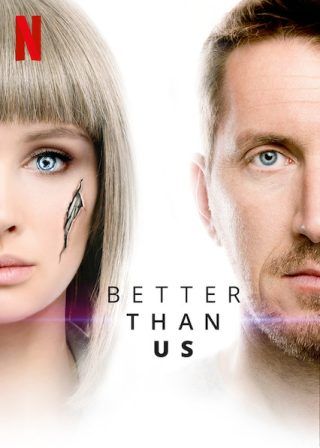
This is a two-season Russian sci-fi series, I already wrote in detail about it in my blog some years ago, you can read it here .
In this series, the important thing is not the big scenes, but the small details, the everyday life in a society where humans and robots (bots) coexist daily in all aspects. The spectacular is sublimated in the mastery of the setting, its forte is the humanization of the future. In fact, the initial story is very similar in “Better than Us” and in “Real Humans”. Curiously, where the Swedish one faltered, the Russian one excels. The Russians do not speculate half-heartedly, they go all the way in every aspect. In political terms, we could say that the Swedish one is a series based on a supposed social democracy of an almost immediate future, but full of empty decorations inside. “Better than us” however, is much closer to the current cyberpunk in which we live.
In fact, if there’s one thing I like about Russians in general, it’s how they show beauty in the everyday and how they are able to talk about everything without even mentioning it. Here there are no empty decorations and fillers, here everything is coherent, everything has a soul, especially the ugly objects.
You may not realize it when you watch it, because this series seems like just another television product, made to entertain and to lucubrate about a hypothetical future where robots are just another part of the capitalist ecosystem. You may find social plots featuring a broken family with two children indifferent, and it’s true that the crime-type plot is just one of dozens we’ve seen on television. But underneath all that layer of superficiality, hides the best script I’ve seen in television science fiction in a long, long time. It is hidden, as are the masterful performances of some of its supporting actors.
Real humans (Äkta Människor)(2012)
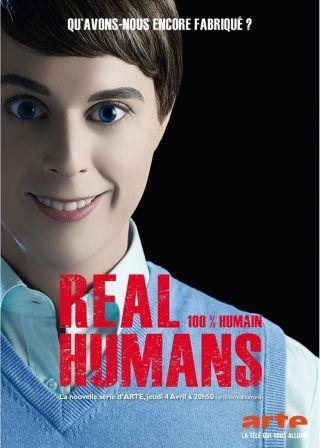 Swedish series of two seasons that had enough repercussion for them to buy the rights and recreate it with a UK/USA co-production that did not understand the original spirit of the series.
Swedish series of two seasons that had enough repercussion for them to buy the rights and recreate it with a UK/USA co-production that did not understand the original spirit of the series.
In the very near future, hubots (human-like androids) are sold and purchased as just another household appliance. Capable of learning from their environment and docile as small animals, they can be programmed with different roles and personalities. They have quickly become part of everyday life. The hubots, almost indistinguishable in appearance from humans, are employed on a massive scale as sales clerks, factory workers, personal assistants, caregivers for the elderly, nurses, drivers, housekeepers, prostitutes, and even intelligent mobile targets for playing paintball wars. This silent social change provokes the rise of a philo-fascist organization called “Real Humans” (Äkta människor in Swedish) that singles out hubots as enemies of society, since, according to them, they take jobs away from humans and even destroy their families.
It is perhaps the most innovative social science fiction series ever made, as it depicts a profoundly changed society, showing in the process the worst of humanity: extreme selfishness, compulsive consumption, ruthless sex and other moral dilemmas. Real humans is pure social science fiction.
Although Swedish humor is very different from Spanish humor, in “Real humans” there are universal things, such as fear, loneliness, curiosity or lust. Emotions that are conveyed with a desolate frankness. The series delves especially deep into these topics, and even dares to tackle some of them, such as faith and religion. Skillfully mixes in some surprise elements and unfortunately gets into some topics that are too far from plausible.
If you are more interested in Real humans, I talked about it in more detail in an article on my blog that you can read.
Blackmirror
 I talked about it in an article on my blog that you can read here.
I talked about it in an article on my blog that you can read here.
Black Mirror is a six-season British television series. Each chapter tells a story and addresses most of the issues by projecting a not-too-distant future. Each story has a common theme: the dark side of human beings and technology. Most of the episodes could be said to take place in a kind of dystopia in the near future. Not more than a hundred years in the future, sometimes it seems not even twenty years.
The author of the series, Charlie Brooker, explained the reason for the title of the series to The Guardian, noting, “If technology is a drug – and feels like a drug – then what are the side effects. This area – between pleasure and discomfort – is where Black Mirror, my new series, is set. The “black mirror” of the title is what you’ll find on every wall, on every desk, in the palm of every hand: the cold, glowing screen of a television, a computer screen, a smartphone.”
Each episode has a quality in production and story development that many films in the genre cannot aspire to due to lack of talent. In some cases they even have the appearance of renowned actors who embroider the role, as is the case of John Hamm (Mad men) in the Christmas space between the second and third season, an episode called “White christmas” that lasts a whopping 90 minutes. It could be a movie, the kind that gets awards, but it “settles” for signing one of the best science fiction television episodes ever.
Although the last few seasons have been much weaker than the first ones, there’s no denying that it’s another one of those TV gems you can’t miss.
The Man In the High Castle (2015)
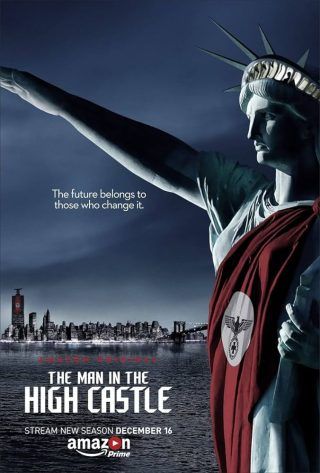
“The Man in the High Castle” is a television series that offers an alternative view, a uchronia of World War II and the years that followed. Released in 2015, this adaptation of Philip K. Dick’s book transports viewers to a dystopian reality in which the Axis Powers won World War II and divided the United States into zones controlled by Germany and Japan.
The plot follows a diverse cast of characters struggling to survive and resist oppression in this world dominated by totalitarian regimes. From the mysterious appearance of films depicting an alternate reality to political conspiracies and power struggles, “The Man in the High Castle” offers an exciting narrative full of unexpected twists and turns, more comprehensible than Dick’s original novel.
Throughout its four seasons, “The Man in the High Castle” captivates us with its immersive narrative, complex characters and dark, oppressive atmosphere. The series has ups and downs but it is engaging and surprising, as well as being very well recreated, so much so that it almost seems like a historical documentary about an alternate reality.
Highly recommended, although I wouldn’t put it in my Top-5 list.
Doctor Who (2005)
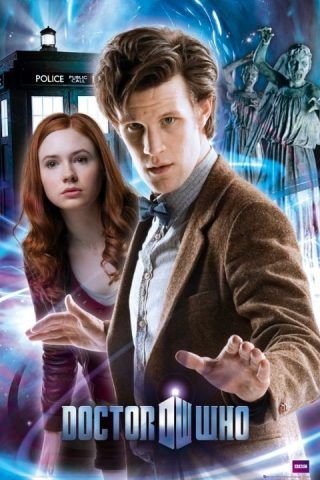 I am talking about the “new” series that began in 2005 and has completed 13 seasons to date. There is an earlier version, from 1963 with 26 seasons, you can see more information on wikipedia because it is perhaps the longest running series on television.
I am talking about the “new” series that began in 2005 and has completed 13 seasons to date. There is an earlier version, from 1963 with 26 seasons, you can see more information on wikipedia because it is perhaps the longest running series on television.
I talked about it in my blog a long time ago, you can read the article here.
Since its premiere in 1963, “Doctor Who” has been an icon of British television and a worldwide phenomenon in science fiction. This series takes us on a thrilling journey through time and space in the TARDIS, a spaceship disguised as a blue police box, as we follow the adventures of the Doctor, a mysterious alien time traveler.
The plot follows the Doctor and his companions as they explore alien civilizations, confront fearsome enemies and fight to protect the universe from unimaginable dangers. With a mix of adventure, intrigue and humor, “Doctor Who” offers an exciting and imaginative viewing experience.
What makes “Doctor Who” unique is its ability to reinvent itself with each new incarnation of the Doctor. Over the years, we have seen several actors play the enigmatic Time Lord, each bringing their own personality and style to the role, ensuring that the series always feels fresh and exciting.
Stargate Atlantis (2004)
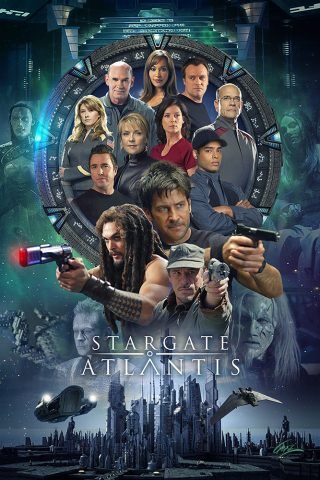
This series, a spin-off of the successful “Stargate SG-1,” begins when an international team of scientists and military personnel discovers the legendary lost city of Atlantis, an ancient colony of the advanced alien race of the Ancients. With the help of the Stargate, the team travels to Atlantis and encounters a series of alien civilizations, advanced technology and deadly dangers.
What makes “Stargate Atlantis” unique is that it is based on a fixed base on a planet in another universe, as a human outpost. At this point it is innovative, although it borrows heavily from its initial series, Stargate SG1.
After five entertaining seasons, it is a series that delivers what it promises and where, to the delight of fans, included the main cast of Firefly as guest actors in some episodes.
Snowpiercer: Snowpiercer
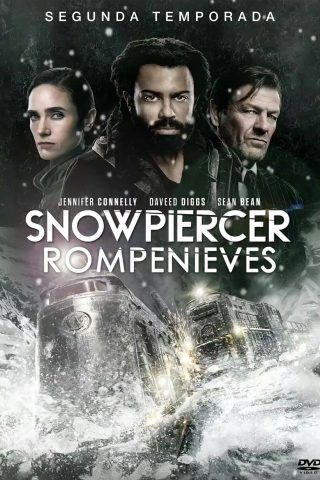
Three-season series. Curious series based on a movie and which concluded with one of the best series of recent years, based on a rather unusual premise but which serves as a wonderful sociological game.
“Snowpiercer: Snowpiercer” is a series that offers a bleak and captivating look at a dystopian future where humanity struggles to survive in an icy and desolate world. Based on the film of the same name and the French graphic novel “Le Transperceneige”, the series takes us aboard a train that perpetually travels the Earth, providing the last refuge for survivors of the climate disaster that has frozen the planet.
The plot unfolds in a microcosm aboard the train, where all facets of society are represented, from the rich and privileged at the front to the poor and downtrodden at the back. As inequality and injustice deepen, a revolution led by the marginalized erupts, triggering brutal conflicts that threaten to destroy the delicate balance of the train.
Although the series is dark and often ruthless in its depiction of class struggle and oppression, it also offers moments of hope and resilience. It is a story of perseverance and redemption, showing how even in the most hostile environments, humanity can find ways to resist and survive.
Dollhouse (2009)
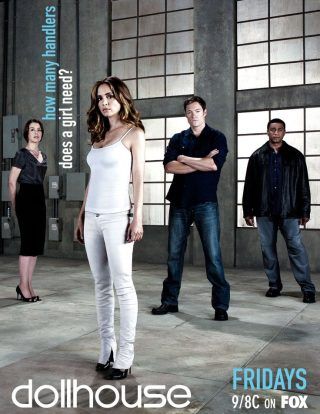
American series of two seasons that proposes a technology where you can implant personalities and memories completely fabricated to people who as dolls (hence the name) serve a purpose for an organization in the shadows.
Without too much ambition, the series manages to create a rather peculiar atmosphere and characters. I remember it fondly for its moral dilemmas and for the morbidity of some of the stories. Don’t expect technology, space travel or big plots, it’s a series that serves to explore the human side of science fiction.
Defiance (2013)
 In 2013, we were peacefully transported to a unique post-apocalyptic landscape with the release of Defiance. This series took us to a dystopian future where Earth has been transformed (in a sort of reverse terraforming) by the arrival of several alien races and a devastating interplanetary war.
In 2013, we were peacefully transported to a unique post-apocalyptic landscape with the release of Defiance. This series took us to a dystopian future where Earth has been transformed (in a sort of reverse terraforming) by the arrival of several alien races and a devastating interplanetary war.
Set in the frontier town of Defiance (formerly known as St. Louis), the series follows the intertwined lives of humans and aliens as they struggle to survive in a ruthless and danger-filled world. Defiance offers a fresh and exciting look at race relations and the challenges of coexistence between humans and aliens in a world that is half human, half something else.
What sets Defiance apart is its focus on the interaction between humans and aliens, as well as its unique blend of sci-fi and western elements. From gun battles to shootouts in the dusty streets of Defiance to political intrigue in the halls of power, the series immerses us in a vibrant, action-packed world that never ceases to amaze.
Although Defiance had only three seasons, the series defied genre conventions.
Beyond the Limit (1995)
 I talked about it in an article on my blog that you can read here.
I talked about it in an article on my blog that you can read here.
“The Outer Limits” from 1995 is a fascinating reinvention of the classic 1960s science fiction series. Released in 1995, this contemporary version captivated a new generation of viewers with its combination of intriguing storylines, enhanced special effects and a renewed focus on the themes of technology, morality and the unknown.
Each episode of “The Outer Limits” features a stand-alone story, exploring a wide range of science fiction and horror concepts. From alien encounters to time travel, from artificial intelligence to parallel dimensions through the limits of imagination.
What distinguishes this version of “The Outer Limits” is its focus on the human aspect of the stories. While the plots often involve fantastical elements, the series focuses on how these extraordinary events affect the people involved. This creates an emotional connection with viewers and allows them to reflect on deeper questions about human nature and the universe as a whole.
Throughout its seven seasons, “The Outer Limits” captivates us with its unique and unconnected stories (with a few exceptions). Another must-see series on this list.
Torchwood (2016)
 This series, a spin-off of “Doctor Who”, immerses us in a world of intrigue, danger and secrets as we follow the missions of the team of the covert organization Torchwood. Set in Cardiff, Wales, “Torchwood” follows the activities of an elite team dedicated to protecting Earth from extraterrestrial and paranormal threats. With quirky Captain Jack Harkness at the helm, the Torchwood team faces a variety of alien creatures, government conspiracies and ethical dilemmas as they struggle to keep humanity safe.
This series, a spin-off of “Doctor Who”, immerses us in a world of intrigue, danger and secrets as we follow the missions of the team of the covert organization Torchwood. Set in Cardiff, Wales, “Torchwood” follows the activities of an elite team dedicated to protecting Earth from extraterrestrial and paranormal threats. With quirky Captain Jack Harkness at the helm, the Torchwood team faces a variety of alien creatures, government conspiracies and ethical dilemmas as they struggle to keep humanity safe.
What makes “Torchwood” unique is its focus on the personal and emotional ramifications of struggling with the unknown. Through its complex characters and interwoven storylines, the series immerses us in a world full of mystery and excitement, where each episode is a stand-alone adventure that leaves us with our hearts in our throats. Throughout its four seasons, “Torchwood” and with some great episodes (and many others, frankly bad) is a different and Dr. Who-flavored series.
Raised By Wolves (2020)
Premiering in 2020 and created by acclaimed filmmaker Ridley Scott, the series transports us to a distant future where humanity is on the brink of extinction after a devastating war between religions.
The plot follows two androids, known as Mother and Father, who are sent to a distant planet to raise a group of human children in hopes of starting over and preserving the species. However, as the children grow up and the colony faces new dangers, internal and external conflicts break out, testing the beliefs and boundaries of all involved. The series is visually stunning, with dazzling alien landscapes and production designs that transport viewers to a whole new world.
Although the series is dark and often ruthless in its portrayal of humanity and its beliefs, it has its moments. Personally the main characters make me nervous, if it’s on the list is because it’s a very good series, but I didn’t like it, especially the main character.
Some of the ones I have purposely left out
These are some series that I have seen, but that I would not recommend, for different reasons, and that I leave here as a warning to the navigators. If you’re curious as to why I wouldn’t recommend watching it, feel free to ask me in the comments and I’ll be happy to answer.
Andromeda, Startrek DS9, Startrek TOS, West world, Outcasts, Survivors, The walking dead, Falling skyes, V (2010 Remake), Under the dome, Space above and beyond, Zenith, Misfits, Star trek Discovery, Continuum, Foundation, Philip K. Dick’s Electric Dreams, Red Dwarf, The Ministry of Time, Dark, Stranger Things, The Mandalorian, The X-Files, Fringe, The boys, The 100, Sense8, Orphan Black, Halo, Smallville, Fallout (2024), Heroes, The peripheral, The OA, Andor, Star Trek: Picard, Alice in Borderland, The Last Ship, Colony, The Book of Boba Fett, Silo, Falling Skies, Killjoys, Star Wars: Ahsoka, Lost in Space, La Brea, The Three-Body Problem, Foundation, The Lost Room.
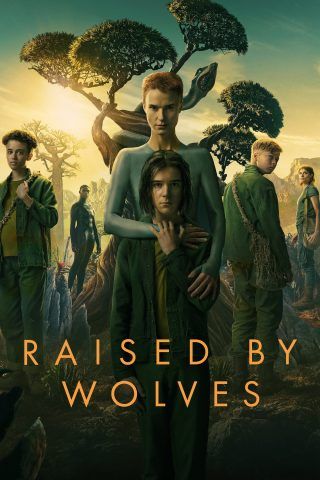

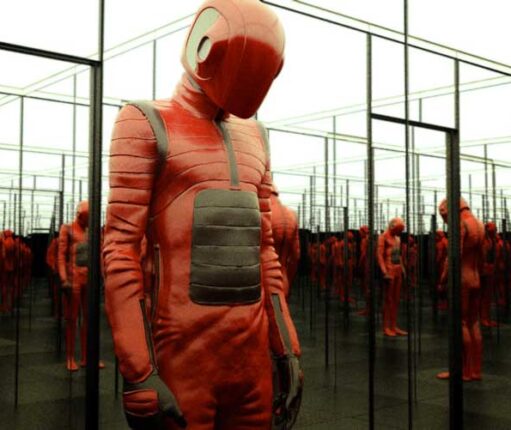

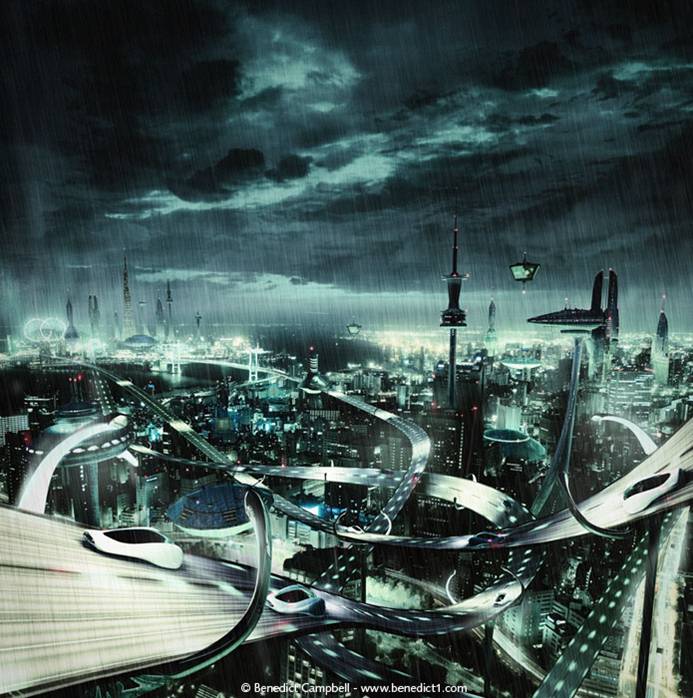
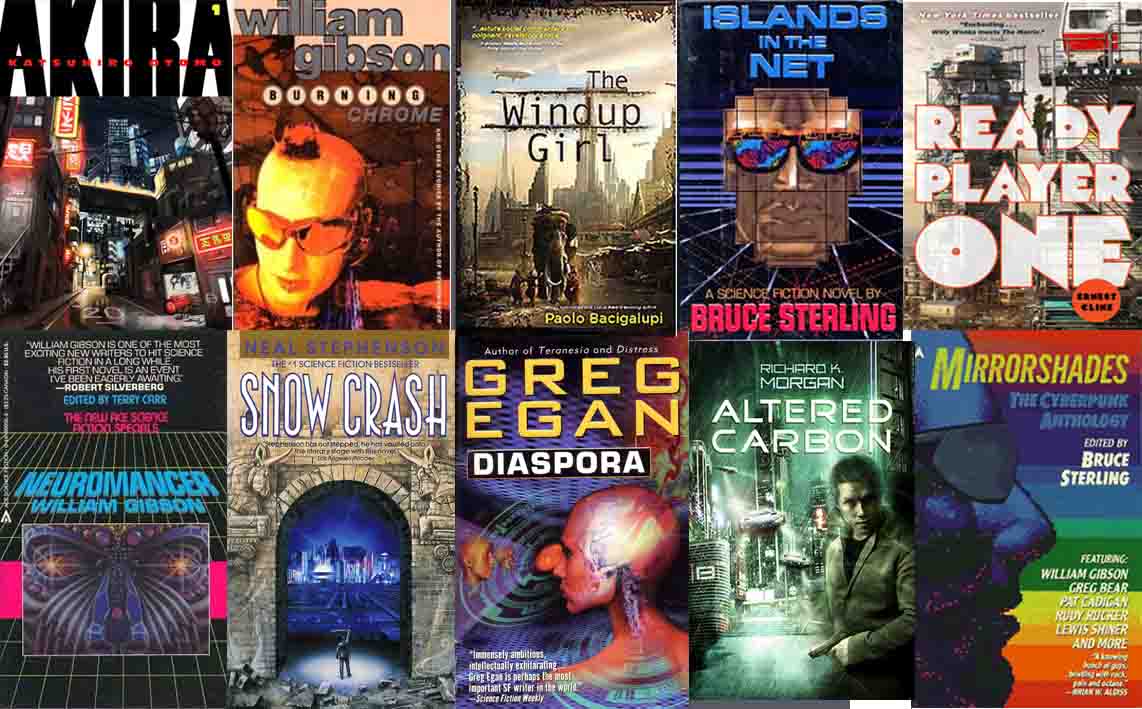
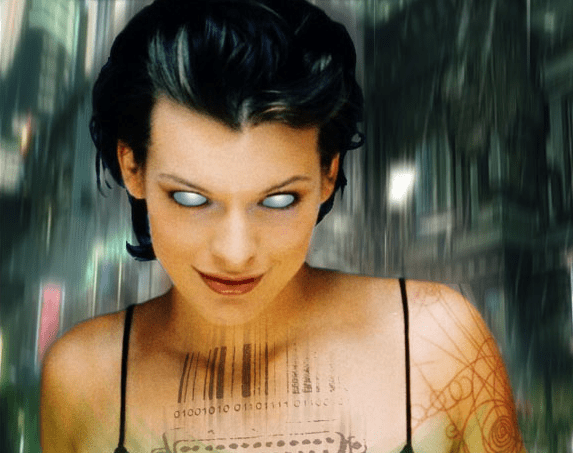
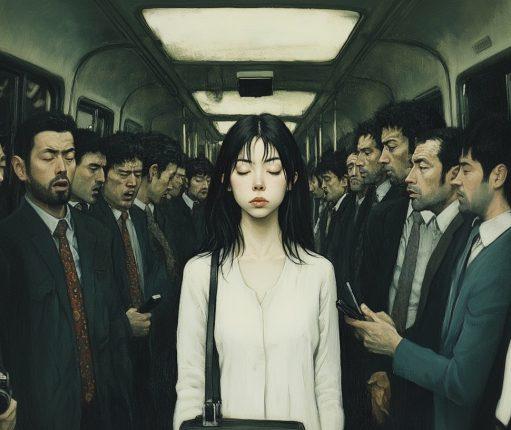
No Comments